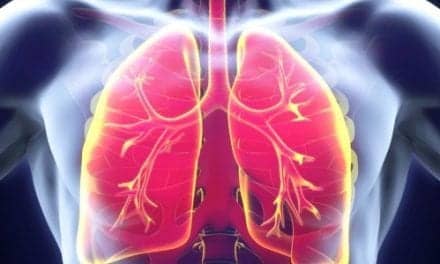Higher levels of high-density lipoprotein (HDL) cholesterol were associated with greater declines in lung function in an analysis of six cohort studies.
Among more than 32,000 adults followed for up to 25 years, higher baseline protein HCV cholesterol showed a direct association with more rapid lung function declines, according to researcher Elizabeth Oelsner, of Columbia University, New York City, and colleagues.
Over seven years median follow-up, compared to participants in the lowest HDL cholesterol quartile at baseline, those in the higher HDL cholesterol quartile showed a 9 mL greater decline in FEV1 (P<0.0001). This effect size is similar to a 10-year increment in pack-years smoking, the researchers noted. Oelsner presented the study findings at the European Respiratory Society International Congress 2016.
“Our findings are preliminary, but we think they are very interesting with respect to the emerging understanding of the lipid biology of the lung,” Oelsner told MedPage Today. “We also believe that it is interesting to consider the possible target effects of HDL raising therapies that are aiming to reduce cardiovascular disease.”
Oelsner noted that while COPD is a leading cause of death and chronic illness, smoking remains one of the few modifiable risk factors for the disease.
“The biology remains poorly understood,” she said. “There has been some very exciting work linking (the lipid molecule) ceramide biology with COPD risk and, more specifically, emphysema.”










